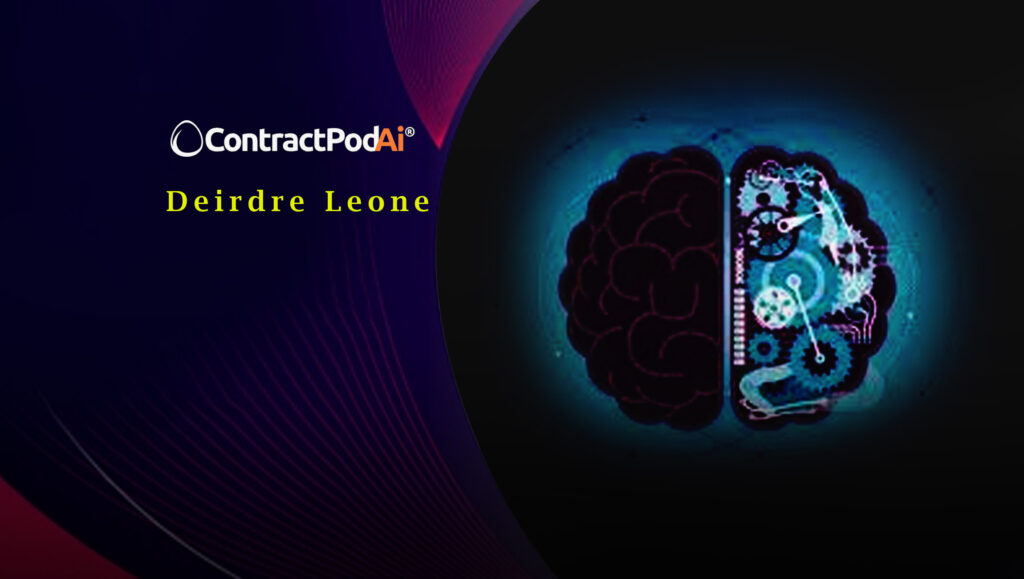Sales could not be a more human profession. It requires mental stamina and a keen sense of emotional intelligence – each derived from years of on-the-ground experience.
And yet, two decades into the 21st century, the sales profession is on the verge of being digitally transformed. It is being completely refashioned by workplace technology, particularly in the form of artificial intelligence (AI).
A brief history in AI
As a refresher, artificial intelligence is a software technology that works outside of strict hard coded algorithms, to accomplish goals set by humans. And machine learning powers the most fascinating capabilities of it. The latter is a type of AI that identifies individual patterns – based on large sets of data – using them to make predictions. Over time, the machine continues to use of even more data to improve those same predictions. And in stark contrast to traditional software, AI technology powered by machine learning only gets better with age.
In recent years, artificial intelligence has made its way into our lives in a number of ways. The actual business of sales is no exception.
Read More: Why Is It Time To Embrace Artificial Intelligence In Your Everyday Life?
The numbers don’t lie
Competition between AI-driven and traditional firms is happening across many sectors and industries. For leaders of traditional firms, competing with digital rivals involves more than deploying enterprise software or even building data pipelines, understanding algorithms, and experimenting with the same. It requires ‘rearchitecting’ firms’ operating models altogether. Already at work in medium- and large-sized organizations, AI harnesses computing power to change the way professionals operate for the better. According to a recent Gartner survey, 60 percent of chief information officers have long-term plans for AI, while 20 percent are currently experimenting with it. So, now is the right time for leaders to create more digital workplaces.
With such a range of intelligent solutions available on the market, artificial intelligence is slowly transforming sales and marketing teams, too. In fact, a 2017 McKinsey and Company study estimated that 85 percent of sales-related tasks could be automated by 2020. And that is largely thanks to AI and machine learning.
But artificial intelligence need not be sophisticated – the stuff of science fiction. Whether you are helping to grow a digital startup or expand a traditional enterprise, it is absolutely essential to understand and appreciate the impact that AI has on operations, strategy, and overall competition.
Improving sales performance with AI Tech
As stated above, the strength of AI-powered customer intelligence is already on display in sales departments. It helps sales teams to sort and analyze data and generate valuable business insights at lightning-quick speed. Potentially, all of this helps salespeople to save time, focus on the right customers and moments of opportunity, as well as form better-informed sales decisions.
Just imagine learning more about your customers’ biggest pain points and buying cycle. This can help you to make the business case for buying from your company – even during times of crisis and economic downturns.
Further, AI supports salespeople to work more efficiently and effectively in the following specific ways:
Predictive lead scoring
Whenever AI is built into customer management systems, sales teams can focus their time and energy on those high-conversion leads. Such systems accurately predict the likelihood of customers purchasing from companies. Which ones are not worth pursuing at all? Which ones need a little more persuading? And which ones are ready for a sales call right now? There is far less guesswork like this when it comes prioritizing leads.
Account management
Ensuring the highest level of customer support can be rather challenging when managing multiple accounts. But sales teams are enabled to take the right steps – and the correct time – when AI is left to take care of business on the administrative side. It analyses sales activity at each juncture to find out if things are going correctly or not.
Customer communication
With the majority of customers now expecting a response to a sales- or marketing-related question in mere minutes, communication is of the utmost importance for sales teams. They simply need to reply to potential and active customers as promptly and thoroughly as possible. To that end, automated replies facilitate this kind of one-on-one communication – and perhaps lead to conversions down the road.
Predictive forecasts
AI-based systems also highlight opportunity-rich markets while predicting more stagnant ones. Such crucial data allows sales teams to tailor their services to meet customers’ individual needs.
Price optimization
Finally, AI gathers and analyzes available data from a number of sources. This provides sales teams with a chance to come up with solutions that are not only more fail-proof, but cost-effective.
Of course, artificial intelligence is not without its own limits. It has yet to reach the full height of human intelligence: AI’s decisions are based on historical data and, therefore, prone to error. Not all that unlike humans! So, at times, it is important not to take AI outputs as the final word – employing some common sense instead – in order to minimize risks.
Read More: SalesTechStar Interview With Trent Mayberry, Chief Digital Officer At UST Global
Change is on the horizon
Nevertheless, it is rather difficult to overestimate the long-term impact of AI technology. Gartner reports that over the next two decades, AI-driven digital transformations will “offer employees unprecedented information awareness and insight, freedom from low-value-add activities, and the ability to easily use complex technologies.” Additionally, with purposeful stewardship, “AI will be a significant source of competitive advantage for organizations that show early-on a broad mastery of this transformational technology.”
Just remember, however, that introducing AI to platforms, systems, and businesses is an incremental process. It cannot be adopted and implemented all at once. When sales professionals determine the precise sales functions that they want to improve, they would do well to proceed with thoughtful consideration and attention.
In the not-too-distant future, AI will be effective at augmenting and automating an even wider variety of sales positions, both existing and new. Sales teams’ role will continue to change and evolve, as the technology frees up salespeople to focus more on the ‘human side’ of the business – the kind of work they invariably do best.




















